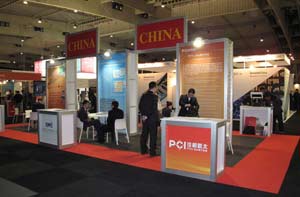Wuhan to become smart city by 2020
[2012-11-16 11:11]Wuhan, capital of Central China's Hubei province, aims to become a leading city in terms of applying technology to improve the lives of its citizens.
Smart city: opportunity and challenge for firms
[2012-11-15 10:20]China's urbanization and Chinese cities' eagerness to "go smart" could mean great business opportunities for enterprises.
CASIC helps Chinese cities get smart
[2012-11-14 10:27]China Aerospace Science and Industry Corporation has been putting major effort into developing "smart city" solutions for Chinese cities in recent years.
'Smart city' takes shape in Xinjiang
[2012-11-14 08:15]The remote oil town of Karamay in Northwest China's Xinjiang Uygur autonomous region is adopting cutting-edge technology to become a "smart city" in order to make life easier for residents and improve local administration, its mayor said.
Bright ideas for cities of light
[2012-10-29 14:25]Schneider Electric has been gearing up to carry on its Smart City Solutions, which is set to use different kinds of smart technologies to efficiently manage cities' resources.
Beijing prepares to get smart
[2012-10-20 00:22]The recent Beijing Design Week demonstrated that Smart City is about completely open innovation.
ZTE launches 'Smart City' project
[2012-09-13 21:36]Telecom equipment maker ZTE Corp announced its Smart City strategy on Thursday, aiming to grab business opportunities in China's urban areas.
China Unicom launches ‘Smart City’ strategy
[2012-09-04 16:03]China Unicom (Hong Kong) Ltd announced its “Smart City” strategy on Tuesday, which aims to provide mobile applications and services to facilitate people’s lives, as well as the operations of companies and local governments in several Chinese cities.
'Smart city' initiatives to boost economy
[2012-07-24 17:42]"Smart city" initiatives in China are expected to attract huge money and create jobs, thus contributing to the country's economic growth.
Building a 'smart' city
[2012-06-18 08:07]Nanjing has made the transformation into a "smart" city using IT and other intelligent technologies an important priority.
IT firm focuses on smart city solution
[2012-06-13 21:10]IT services provider Digital China Holdings said on June 13 that it aims to have 100 billion yuan ($15.8 billion) in sales revenue during China's 12th Five-Year Plan (2011-15) .
260 cities build digital geo-systems
[2012-05-24 06:55]More than 260 prefecture-level Chinese cities are building digital geographic systems to provide better services to citizens.
SmartCity Expo wants more Chinese involvement
[2012-05-11 20:22]SmartCity Expo & World Congress invites Chinese local governments and companies to participants in its event for this year, said its organizer in a news briefing in Beijing May 10.
Their vision is to build China's first 'Smart City' from the IOT industry
[2011-12-09 08:12]The Internet of Things (IOT) - a global network that links physical and virtual objects through data capture and communication (European Union definition) - is becoming a major new industry in China, especially in one particular county.
Citizens the central figure in smart city transformations
[2011-12-02 14:13]Smart cities will reindustrialize urban areas
[2011-12-02 10:53]The software of cities can be modified through new technologies, but what about their hardware?
Experts exchange views on planning the future of cities
[2011-12-01 09:50]When more sustainable cities are sought—ones that supposedly will offer a better quality of life—who decides what technologies to use, and how to use them? The answer is not simple.
Smart City Expo highlights ICT
[2011-11-30 09:39]Tomorrow's cities must establish systems capable of handling the massive amount of data generated by their residents and infrastructure.
Barcelona event discusses building 'Smart Cities'
[2011-11-29 15:18]Representatives of cities and leading organizations gathered in Barcelona, a leading tourism destination in Spain on Nov 29 to share their innovative ideas on building smart cities.
Digital China sees turnover surge
[2011-11-17 10:17]Digital China Holdings Ltd reported that turnover surged 23.87 percent year-on-year between April 1 and Sept 30, hitting a record high of HK$34.14 billion ($4.4 billion) on Nov 15.



